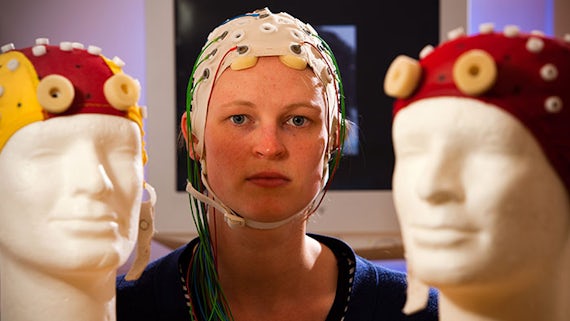People with genetic skin condition more likely to present with psychological disorders
25 March 2020

A pioneering study led by Dr William Davies of the School of Psychology has uncovered new insights into psychological issues and medical problems associated with the genetic skin condition - X-linked ichthyosis (XLI).
The condition, which causes dry and scaly skin, is caused by a genetic deletion or mutation carried by approximately seven million people worldwide. Previous work into the condition, led by Dr Davies and colleagues, has shown that individuals with XLI are substantially more likely than non-affected individuals to present with developmental disorders, such as Attention Deficit Hyperactivity Disorder (ADHD) and autism.
This latest study, using the UK Biobank sample of half a million middle-aged participants recruited from the general population, has revealed a further four previously unknown issues associated with the XLI condition, both psychological and medical.
The study found that:
- Males carrying XLI-associated deletions exhibit higher rates of mood symptoms (depression, anxiety and irritability) than non-carrier males
- Deletion carriers showed evidence for impaired attention, and poorer performance on a general reasoning task, than non-carriers, but similar academic performance
- Deletion carriers exhibited reduced volume of the basal ganglia, a brain structure important in attention and decision-making, and often smaller in size in individuals with ADHD or autism
- Male carriers of XLI-associated deletions are approximately four times more likely to be diagnosed with an irregular heartbeat (specifically atrial fibrillation or flutter) than male non-carriers. Atrial fibrillation is a known risk factor for stroke and heart failure, so this finding is clinically significant and suggests that cardiac screening of adults with XLI may be warranted
Talking about the findings, Dr Davies said: “Before this study, we knew that young individuals with XLI were at increased risk of certain mental health and medical conditions, but nothing about the underlying cognitive and neural basis of this risk. Our work has suggested that older individuals with XLI may present with psychiatric and behavioural symptoms in the absence of significant cognitive impairments.
Dr Davies added: “The robust and unanticipated link with cardiac problems is of significant clinical value for patients with XLI, and will aid our understanding of the biological basis of a common heart condition. These findings will be of relevance to patients with XLI and their families, to clinical teams involved in their care, and to genetic counsellors”
Dr Davies led the study as part of the School of Psychology Research Internship Programme (SPRInt) with undergraduate student, Lucija Brcic, and in collaboration with colleagues from Cardiff University School of Medicine.
View the full paper on the British Medical Journal website.

